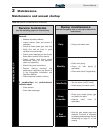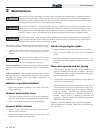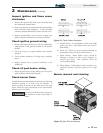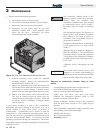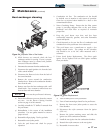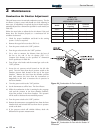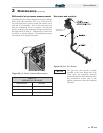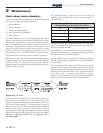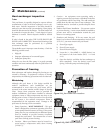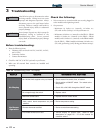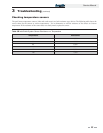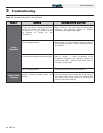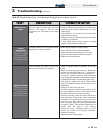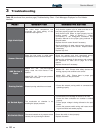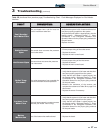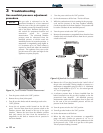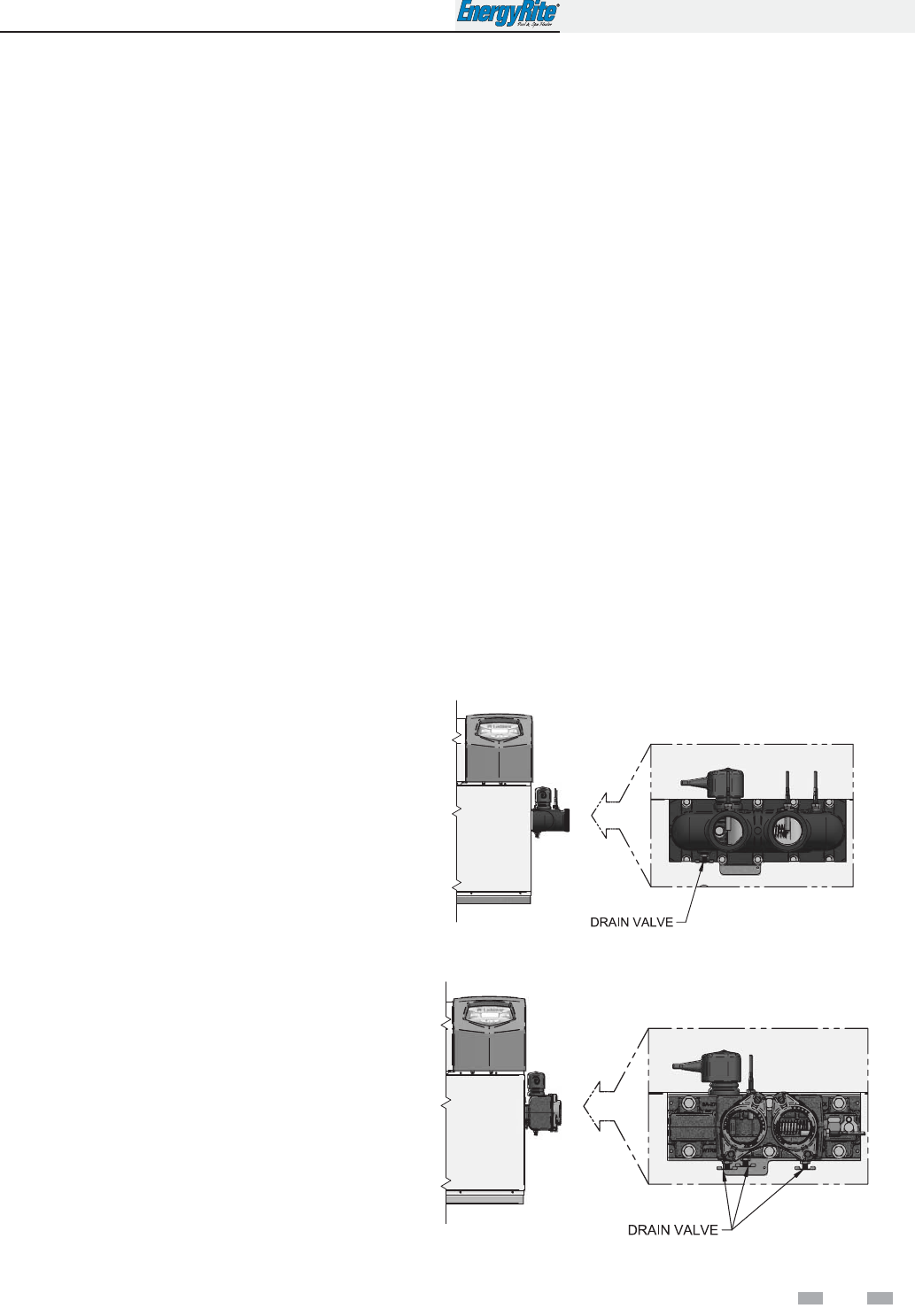
Service Manual
21
Heat exchanger inspection
Tubes
This pool heater is especially designed to operate without
accumulation of scale in the heat exchanger, even in very
hard water. Periodic inspections of the tubes should be
made to be sure that no scale is accumulating. Water piping
should be disconnected at the flanges. The front header can
be removed to inspect the tubes. A scale deposit of paper
thickness is normal. Heavier deposits should be cleaned
out.
If scale is found in the tubes, THE CAUSE SHOULD BE
FOUND AND CORRECTED. Removal and cleaning of the
heat exchanger must be performed by a qualified
serviceman or installer.
The probable cause is improper water chemistry. Check the
following possible causes:
1. High pH.
2. Improper adjustment of an external bypass.
3. Inadequate pump flow.
Always be sure that the filter pump is in good operating
condition and runs continuously when the pool heater is in
operation.
Prevention of freezing
Heat exchangers and headers damaged by freezing are not
covered by warranty. If equipment is subject to freezing
temperatures, the following precautions must be observed.
Winterizing
Although this pool heater is CSA design certified for
outdoor installations, such installations are not
recommended in areas where the pool heater will be
operated in the winter months and the danger of freezing
exists. Proper freeze protection must be provided for
outdoor installations, pool heaters installed in unheated
equipment rooms or where temperatures may drop to the
freezing point or lower. If freeze protection is not provided
for the system, a low ambient temperature alarm is
recommended for the equipment room. Damage to the
pool heater by freezing is non-warrantable.
1. Pump Operation - MOST IMPORTANT - This pool
heater is designed for continuous operation of the filter
system pump when the burners are firing. If the system
pump does not run continuously an additional pump
must be installed to provide constant circulation
through the pool heater. The constant flow of warm
pool water can help prevent freezing.
2. Location - Indoor pool heaters must be located in a
room having a temperature safely above freezing
[32°F(0°C)].
3. Caution - An equipment room operating under a
negative pressure may experience a downdraft in the flue
of a pool heater which is not firing. The cold outside air
pulled down the flue may freeze a heat exchanger. This
condition must be corrected to provide adequate freeze
protection.
4. Outdoor Pool Heater Installation - Use extreme caution
to prevent freezing. A snow screen should be installed to
prevent snow and ice accumulation around the pool
heater or its venting system.
5. Shutdown and Draining - If for any reason the pool
heater is to be shut off when temperatures may be below
35°F (2°C), you must winterize the pool heater:
a) Shut off gas supply.
b) Shut off water supply.
c) Shut off electrical supply.
d) Locate the (1 - Non-ASME, 3 - ASME) drain(s) on
the bottom of the front header (FIG.’s 2-11 and
2-12).
e) Open the drain(s) and allow the heat exchanger to
drain completely. Leave the drain(s) open until
Spring. Drain the pump and related piping.
Figure 2-11_Non-ASME Drain Locations
Figure 2-12_ASME Drain Locations
2
Maintenance
(continued)



